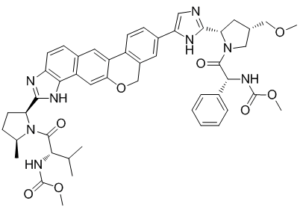EMA: Two new combination therapies against chronic hepatitis C recommended for approval

Last Updated on May 31, 2016 by Joseph Gut – thasso
May 30, 2016 – According to its News and Events section of the homepage, the European Medicines Agency (EMA) has recommended the granting of marketing authorisations in the European Union (EU) for two new combination therapies against chronic (long-term) hepatitis C virus (HCV) infection, namely Sofosbuvir/Velpatasvir (Epclusa) and Grazoprevir/Elbasvir (Zepatier).
HCV infection is a major European public health challenge. It affects between 0.4% and 3.5% of the population in different EU Member States and is the most common single cause of liver transplantation in the region.

Sofosbuvir/Velpatasvir (Epclusa) and Grazoprevir/Elbasvir (Zepatier) belong to a new generation of medicines for chronic HCV infection, direct-acting antivirals, that give high rates of cure of HCV infection and that have, in the past few years, reshaped the way this disease is treated. These medicines block the action of proteins which are essential for viral replication. Sofosbuvir/Velpatasvir (Epclusa) targets the viral proteins NS5B and NS5A, while Grazoprevir/Elbasvir (Zepatier) targets the viral proteins NS3/4A and NS5A.
These new regimens allow cure of patients with chronic HCV infection without the need for interferons, medicines which are associated with poor tolerability and potentially serious side effects that rule out such treatment in a considerable proportion of HCV patients. Despite the rapid development of new therapies, including interferon-free regimens, doctors and patients can still benefit from alternative treatment options. The more treatment options that are available, the better chance a patient has to get the right treatment to cure the disease and to lead a longer and healthier life.
Epclusa contains sofosbuvir, already approved in the EU under the name Sovaldi and as a combination therapy with ledipasvir under the name Harvoni, and velpatasvir which is a novel HCV protein inhibitor. This fixed dose combination of direct-acting antivirals targets all six genotypes, i.e., genotypes 1 trough 6, of the virus. The safety and efficacy of Sofosbuvir/Velpatasvir (Epclusa) was tested in clinical trials involving over 2,000 patients, to assess that the HCV was no longer detected in the blood 12 weeks after the end of treatment (sustained virologic response or SVR), with or without ribavirin. A high proportion of patients (over 90% overall), across all genotypes, had no detectable virus in their blood 12 weeks after the end of the treatment and could therefore be considered to be cured of their HCV infection. The SVR rate for patients with genotype 3 was slightly lower (around 90%). The safety profile of the medicine was considered generally favourable, and in line with what has been observed with sofosbuvir; the most common side effects reported in clinical trials were headache, fatigue and nausea.
Zepatier contains two novel HCV protein inhibitors, grazoprevir and elbasvir. This fixed-dose combination of direct-acting antivirals targets genotypes 1 and 4 of the disease. The efficacy and safety of Grazoprevir/Elbasvir (Zepatier) was evaluated in clinical trials involving approximately 2,000 patients. The medicine also showed a high sustained virologic response (over 90% overall of patients had no detectable virus in their blood 12 weeks after the end of the treatment), and in particular demonstrated its efficacy to treat patients with chronic kidney disease, who have a poor prognosis. The safety profile of the medicine was also considered favourable; the most common side effects reported in clinical trials were fatigue, headache and nausea. Grazoprevir/Elbasvir (Zepatier) has already been approved by the American Food & Drug Administration (FDA). Thasso Post reported earlier on.
The opinions adopted by the Committee for Medicinal Products for Human Use (CHMP) at its May 2016 meeting are an intermediary step on Sofosbuvir/Velpatasvir (Epclusa)’s and Grazoprevir/Elbasvir (Zepatier)’s path to patient access. The CHMP opinions will now be sent to the European Commission for the adoption of decisions on EU-wide marketing authorisations. Once the authorisations have been granted, decisions about price and reimbursement will take place at the level of each Member State considering the potential role/use of these medicines in the context of the national health system of that country.


Hello there! I just wish to offer you a big thumbs up for the excellent information you
have got right here on this post. I am coming back to your blog for more soon.
I am really thankful to the holder of this website who has shared this great
post at at this place.